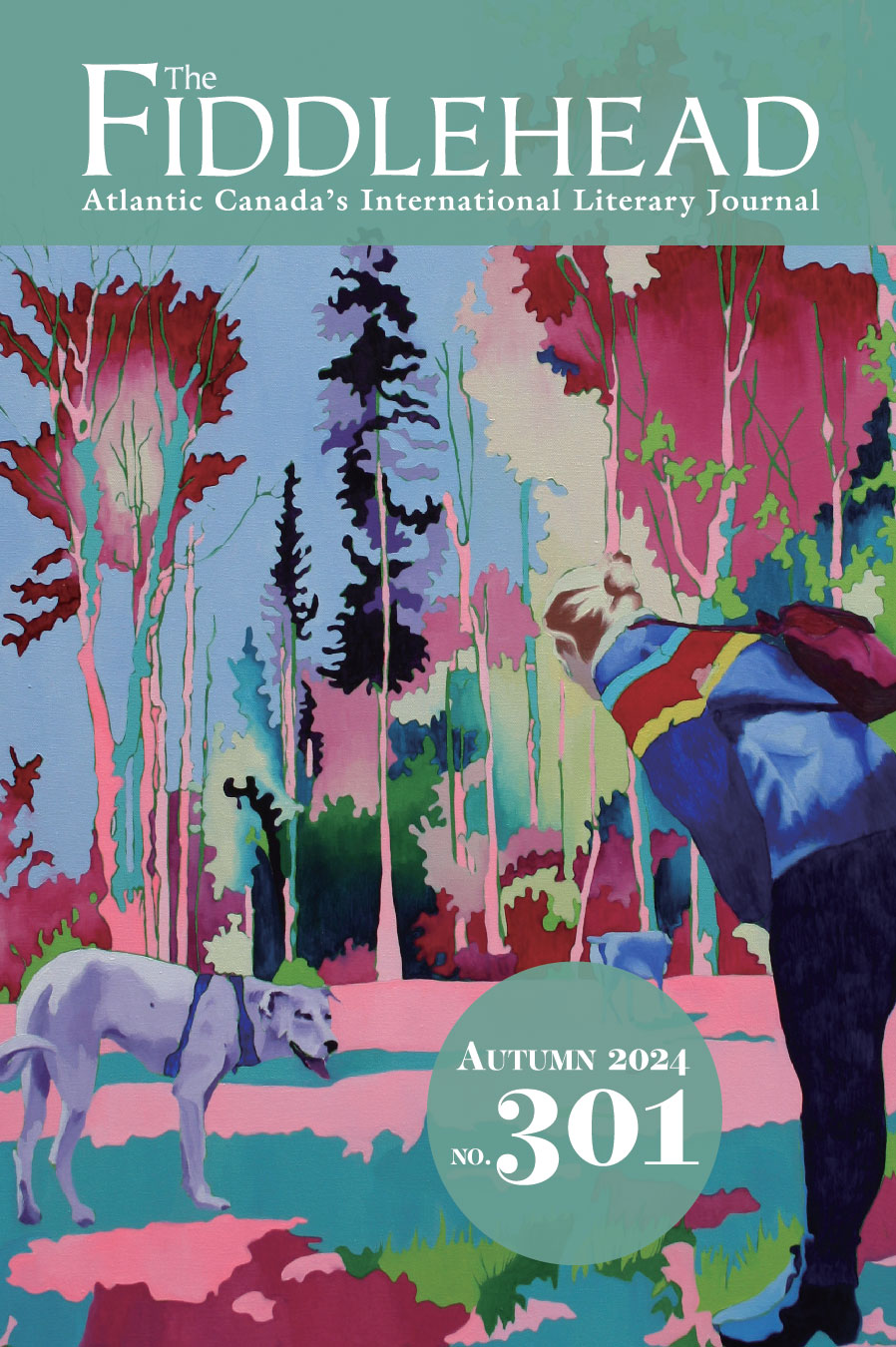
Editorial Assistant Miriam Richer Interviews Margaret Watson whose story "The Returning Wife" appeared in Issue 301 (Autumn 2024)
Miriam Richer: “The Returning Wife” is such a psychologically complex story. I can’t imagine the narrative without a character like Rosemary at its centre, and yet the plot is—at least according to your taxi driver—all too common. Which came to you first: the protagonist, or the scenario?
Margaret Watson: Once a story is written, I find it difficult to identify where it came from. If I could just remember how I did it, I could work the same way again. Because I can’t, I’m forced to learn anew with each new story.
In the case of “The Returning Wife,” however, I do know which came first. The story had its genesis in an anecdote told to me some time ago and the scenario was so shocking that I never forgot it. For a long time, I didn’t know what, if anything, to do with it. Whose story would it be, whose perspective would it take? When I made it Rosemary’s story, I had to create Rosemary.
MR: Your story really puts the close in close third. Rosemary neurotically curates her inner monologue, thereby restricting what the narrator is at liberty to disclose. Does the close third-person style help to distance the protagonist from the narrator? How do you think your story would work differently in first-person POV?
MW: I regularly write in either the close third person or the first person. In my early efforts at a story, I will find myself unintentionally moving back and forth between the two until the narration settles into place. I may have done that with “The Returning Wife,” but I can’t be sure. As you note, this particular third-person is very close to Rosemary’s point of view and for that reason, I expect that there is not much distance created for the reader and that a first-person narration wouldn’t bring the reader much closer.
MR: You’ve taken a relatively static setting—the interior of a taxicab—and made it into an incredibly dynamic environment. Every little detail—the driver’s info posted on the back of the seat, the country song on the radio—adds thematic resonance to the story. I’d love to hear more about your approach to setting and detail.
MW: The only thing I know to do is to put myself in the character’s place. To be Rosemary, sitting in the backseat of this cab on this evening, travelling home from the airport, with a whole lot on her mind. Given her preoccupation, what does she see and hear and what does she think about it?
More prosaically, because this story takes place before cell phones were ubiquitous, I needed a few details that would let readers know when the story is set. It was also important that I knew who the cab driver was and from there I could build his interaction with Rosemary. I even imagined what radio station Claude would favour. I listened to country music a lot in the 1980s and ’90s and the specific song Rosemary hears is one I remember from that period.
Any thematic resonance is purely accidental. But once the accident happens, it can feel like alchemy.
MR: I’m struck by your deft stylistic approach to storytelling. When Rosemary anticipates a routine evening with her partner, the shift into future tense allows an immediacy-packed scene to unfold on a purely hypothetical level. When it comes to telling a good story, how much weight do you place on style?
MW: So glad you noticed the move into the hypothetical future. I was very pleased with that shift in the storytelling. (“Did you notice what I did there?” I shamelessly asked my writing group.)
For me, the style emerges from the narrator. In this case, the narrator is such a close third person as to be almost indistinguishable from the protagonist herself. To the extent possible, how Rosemary’s mind works is the style in which the story is told.
Which is to say that I give a lot of weight to style. Getting it right is painstaking work and I return to the text again and again. As a writer, I want to include the brilliant turns of phrase that I think I’m capable of. But until I learn to write as a universal, third-person, omniscient narrator (so out of fashion these days), until then, if elaborate descriptions or literary allusions or poetic devices don’t align with the protagonist and/or narrator, then they never sound right to my ear.
MR: The final scene in “The Returning Wife” features this brilliant self-reflexive turn. By framing Rosemary’s curated approach to telling her own story, you bring attention to the subjective and slippery nature of narrative in general. How did you arrive at this ending? And do you—like most of us writers—struggle with endings?
MW: I struggle with every aspect of writing and that includes endings.
At least one creative writing teacher used to advise me to end my stories earlier than I ever wanted to, with less certainty, with more ambiguity. Trying to learn this lesson, I often try different endings before I am satisfied that one fits best.
In ending “The Returning Wife,” I wanted to demonstrate the significance of the experience for the protagonist. The story originated in a simple anecdote, but it had become something different, it had become Rosemary’s story and part of her history. What did it mean to her, not only at the time, but later, in the context of the life she lived afterwards? This isn’t to wrap a bow around her experience. Instead, it’s to say that this event was significant, but how it was significant is not spelled out.
At the time I was writing “The Returning Wife,” I happened to re-read Margaret Atwood’s Wilderness Tips, a 1991 collection of stories that were written in the 1980s and mostly set in earlier decades. Atwood “framed” many of those stories in either the more recent past or the present. I think reading that collection when I did, influenced how I ended “The Returning Wife.” It was why framing my story in the way I did and changing the narrator’s voice at the end, felt right.
Possibly the Atwood influence makes the ending a throwback to an earlier era of short story writing. But I prefer to think of it as another period detail, appropriate to the story.
Margaret Watson has been published in several Canadian and U.S. literary magazines, including FreeFall, The New Quarterly and Prairie Fire. She has completed a collection of short stories titled Stalking (still in search of a publisher) and is now at work on a longer project. More at margaretwatson.ca.
You can find Margaret Watson's story in Issue 301 Autumn 2024. Order the issue now:
Order Issue 301 - Autumn 2024 (Canadian Addresses)
Order Issue 301 - Autumn 2024 (International Addresses)










